Recently, the podcast "A diversion from the East to the West" invited Chen Liwen, the founder of "Zero Abandoned Villages", to talk about how to promote garbage sorting in rural areas of China. Chen Liwen published a series of "Forty Years of Garbage Recycling" in The Paper. She studied the history of garbage sorting and recycling in China at Memorial University of Newfoundland and University of Southern California. After returning to China in 2017, she began to promote garbage sorting in rural areas. This article is authorized to sort out the contents of this podcast.
A diversion from the East to the West (Xu Tao): How did you get interested in garbage in the first place?
Chen Liwen:I grew up in the countryside of Hebei. At that time, the environment and natural conditions were very good. I could directly contact the land and wilderness in spring, summer, autumn and winter, and I unconsciously left a brand in my heart.
At the beginning of 2009, I began to do environmental protection. My charity Beijing Global Village organized an activity to visit a landfill in the south of Beijing. The sour and disgusting smell of the garbage dump suddenly hit my taste, and the garbage mountain dozens of meters high hit my eyes.
In the plain of North China, in order to bury garbage, we must first dig and do anti-seepage treatment. After that, it will be filled up continuously. Generally, one or two floors will be filled, and the first floor is nearly 10 meters high. We go to the same landfill several times a year. The first time I went there, it was not high, or it was still empty. After three months, I went there again and went up with a high degree of "rubbing".
I have a friend from the University of California, Berkeley, who was studying waste. I went to the waste recycling market with him, and then went to the waste trading market between the Fifth and Sixth Ring Roads in Beijing. Many people can clearly distinguish these recyclable items they bought and picked up-plastics are even divided into dozens of categories. Recyclable materials are sorted by them and sold, or transported to downstream factories as renewable raw materials for production. Without these industrial chains, recyclables cannot become renewable resources.
I found that waste recycling is not just an economic activity. Garbage is not only an object, but also related to people-whether it is a sanitation worker or a person who recycles waste. I grew up in the country and lived frugally. If we can live a moderate life, the problem of garbage can be solved from the perspective of people.
For me, an important reason for garbage sorting is that from 2009 to 2015, I did some research all over the country and contacted many people living around landfills and incineration plants.
Maybe a few people will think, where did the garbage go? Is there anyone around the garbage mountain? With the development of the city, landfills may be built in places where people live. For example, the Asuwei landfill in Beijing is located in the North Sixth Ring Road. When we investigated it, the villagers said that for more than 20 years, they dared not open the window in summer-because it stinks.
In April 2010, I went to investigate the families affected by garbage incineration in Hai ‘an County, Nantong, Jiangsu Province. There is a child with cerebral palsy, because his mother lived 200 meters away from the garbage incineration plant when she was pregnant. People don’t know that the waste gas from incineration plants may pose a threat to pregnant women. The child was born on May 12th, 2008, and it was later discovered that he had severe cerebral palsy. Later, his father found that some of the growth characteristics of children are the poisoning performance of harmful substances discharged from garbage incineration. For example, dioxin, a colorless and odorless primary carcinogen.
I was particularly impressed that one night, the child’s father asked us to have a look. His child had bitten his tongue because of severe cerebral palsy, which induced epilepsy. We have been to his house four times, and there is no smile on their faces.
In 2014, we went to the garbage incineration plant in Guodingshan, Wuhan. Some children suffered from respiratory diseases due to air pollution and had several operations. Some people who live around the garbage incineration plant can’t move away and have to live there. Their psychological stress and health are affected beyond our imagination. Ordinary people don’t know how to speak. The father of the child mentioned above is very courageous.
A diversion: will you solve the practical problems if you go to investigate?
Chen Liwen: We have spent a lot of energy on research, and tried to promote the relatively safe discharge of landfill sites or incineration plants by applying for information disclosure and talking with enterprises and local governments. But this is not the root of solving the garbage problem. The fundamental question of garbage is, what should we do after garbage is produced? We need a foothold to minimize the garbage problem and reduce dependence on landfill or incineration. At that time, everyone thought of the way-garbage classification.
In 2015, I went abroad to study, because the research brought me great pressure, and I felt helpless because my energy was exhausted. Reading is a process of knowledge storage. I remember studying a case about the marginalization of Indians in the use of resources. In fact, this is the same as the fact that the scavengers lose their right to speak in the process of urbanization. In fact, the root cause is the use of resources and land.
After returning to China in 2017, I thought, what should I do?
At that time, there were two directions, one was organic agriculture and the other was garbage. It happened that a former colleague had a project with the China Foundation for Poverty Alleviation. He was doing poverty alleviation in a village and encountered a serious garbage problem. He asked me if I could see how to do garbage sorting. Because to do tourism development, there can be no garbage.
Before industrialization, there was no garbage in most rural areas of China. Things planted in the land are eaten, straws and the like can be fed to livestock, and livestock manure can be composted into nutrients for planting. This is an ecological circulation system. However, after the 1980s, the self-sufficient life in rural areas was broken. If there were foreign purchases, there would be packaging, which would lead to garbage problems. After 2000, there were more and more plastics in rural areas. At that time, there were two ways in the countryside, one was to burn them all; The second is to dump garbage in potholes, including ponds, like my hometown.
I remember that after the Wenchuan earthquake, we went to Songpan, Sichuan. I will never forget that scene. There was garbage collection in that village, so we followed the old man’s three-wheeled garbage truck to see where the garbage finally went. I had no idea that when the garbage bucket was turned over, all the garbage went directly into the river and continued to pollute the water system.
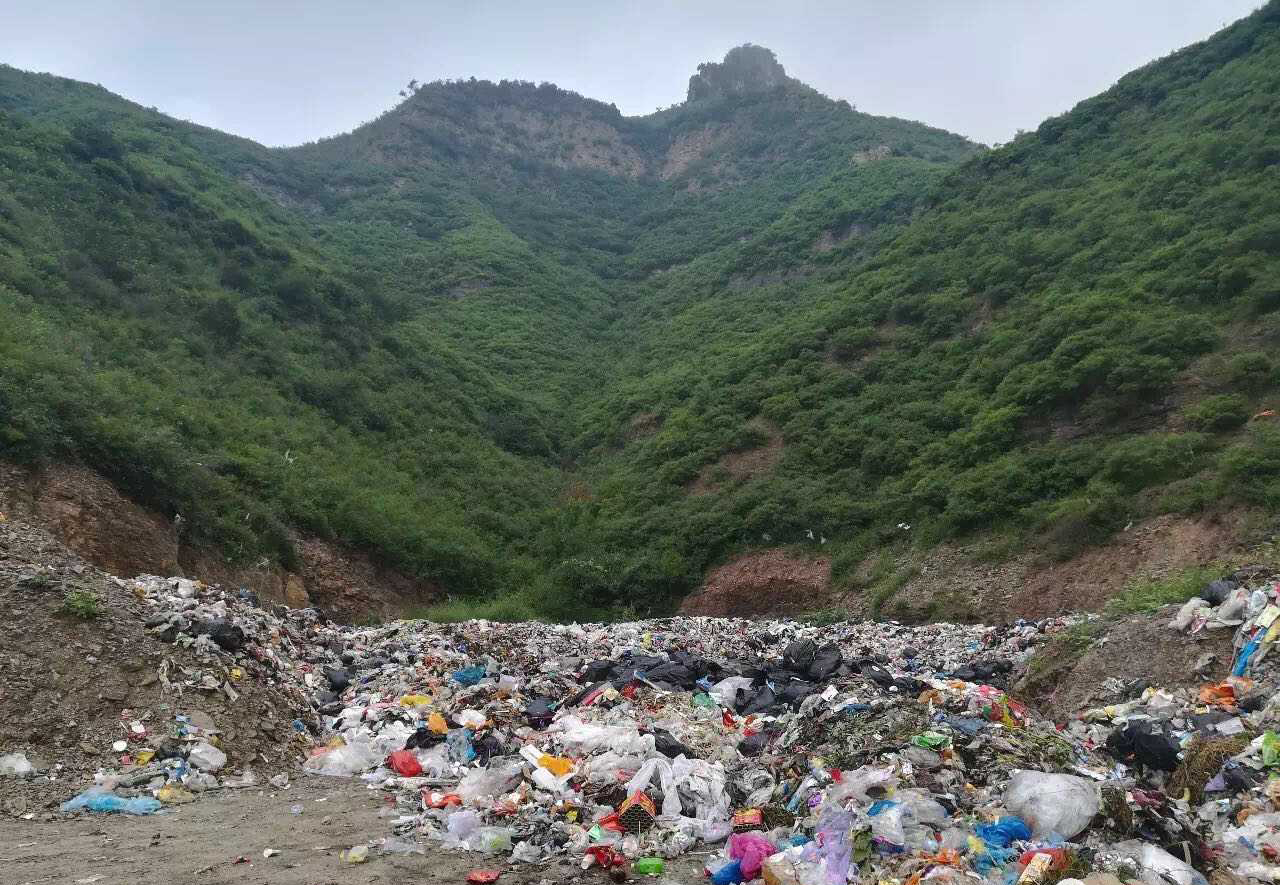
In 2017, the final destination of garbage in Nanxun Village, Hebei Province was a mountain 20 kilometers away. Chen liwen
In fact, rural areas are very suitable for garbage sorting, especially after dry and wet sorting, which can be recycled on the spot. There are two kinds of rural garbage, one is the product of growing from the land; The other is the chemical products produced by industry. It is easier to separate the first kind of garbage and return it to the field by composting or other means.
In addition, the final task of garbage sorting is people’s work, and it is necessary to get through every family. The city is a stranger society, but the countryside is an acquaintance society. So my prediction at that time was that it might be better to do garbage sorting in rural areas than in cities.
I remember when I first came to work in the first village, many people said, what kind of garbage sorting should be done in the countryside? The subtext is, the city hasn’t done it yet. What are you going to do in the countryside?
A diversion: How did you start garbage sorting in the first village?
Chen Liwen:The first village is Nanyu Village, Hebei Province, and we are a little bold. The first thing I did at that time was to buy a trash can, a garbage collection car, and a place to compost. Everything was implemented before it was promoted to the people. We raised a sum of money to do these things.
I arrived in the village at the beginning of July 2017, started working in the village on August 8, and officially started garbage sorting on September 4. We are encouraged by many things in the process.
Ordinary people don’t know what garbage sorting is about, but they don’t exclude outsiders from doing it. They feel that outsiders have come to help us solve the garbage problem. Every time an uncle sees us, he says, I can find you a job. I said, wait, we’ll send you two barrels later.
Later, we did the launching ceremony of garbage sorting in the village, and all the people came to help us put up explanatory stickers. On September 5th, we collected and transported garbage for the first time, and went door to door to do the work. At that time, the garbage taken out by every family was mixed, so we used clips to clip it out and teach them. Many people learned it three times, and there were basically no obstacles. I met only two families in that village who didn’t want to part. Because I feel troublesome, I just want to throw it out casually. In fact, it is unrealistic to ask everyone to meet the standards.
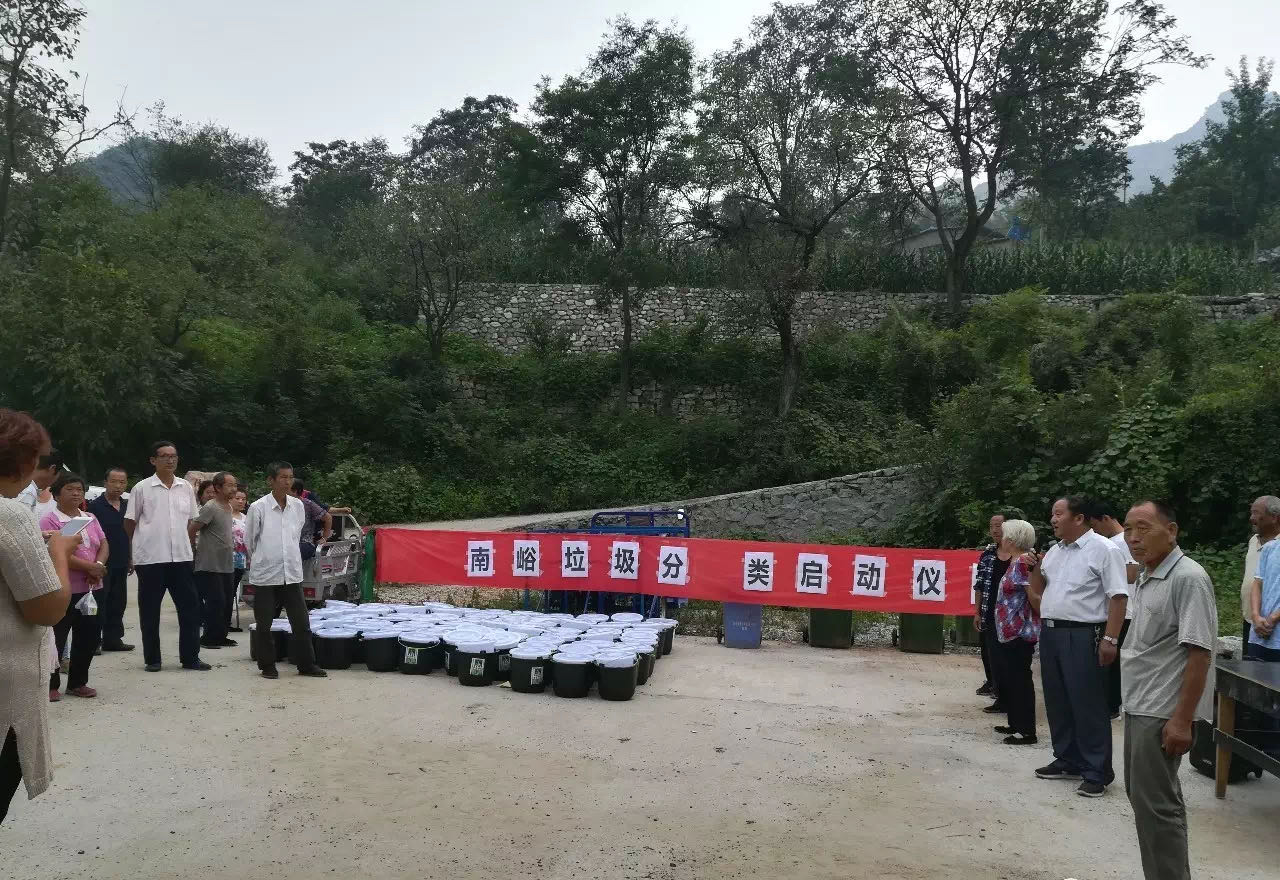
At the garbage sorting mobilization meeting in Nanyu Village, Hebei Province, the banner was old and printed with new words. Chen liwen
There is another thing that impressed me extremely. A woman came out to take out the garbage, but the garbage was mixed. We told her at that time, but we didn’t get a response. Later we learned that she couldn’t speak or hear. Coincidentally, although her daughter is not in the village, she is in the WeChat group of garbage classification. The daughter said that her father can read. We taught her father by writing and drawing, and the next day it was clear.
After working door to door for two weeks, we found that as long as all the hardware is prepared, the people can get a good share.
A diversion: at the beginning, everyone may be more enthusiastic. Can this matter persist?
Chen Liwen:We had no experience in the first village. After a few months, we went back and found that some families were not classified and the village committee did not manage them. So when we arrived in the second village, we realized that we couldn’t do the door-to-door explanation, and we should give it to the village Committee or someone in the village who can take care of it. Later, we went to places where the local government was willing to do garbage sorting.
In 2018, when we finished the second village, we realized that the management of garbage sorting could not be completed at the village level. Because the leading system of the village is the village Committee, it cannot form constraints, but there are government constraints at the township level. Later, Dongyang Township, Guangfeng District, Shangrao City, Jiangxi Province contacted me, and I made a condition whether I could find a township. Finally, I found Dongyang Township.
Wang Shuji, Party Secretary of Dongyang Township, agrees with garbage classification. He asked me: Will garbage sorting be expensive? I said: A village will not exceed 100,000. He said, that’s acceptable.
In November 2018, I was still in my hometown. Wang Shuji asked a director of the township government to come to me with the enterprise and two village committees. After seeing the situation in my hometown, they said that your house is full of garbage, and everyone dares to do garbage sorting. We have been doing garbage collection and transportation in Dongyang Township for four or five years, and of course we have more courage to do it.
At the beginning of December 2018, I went to Dongyang Township. After I went there, I found out that Wang Shuji had taken people to visit several places in Zhejiang, and he himself studied environmental protection. He knows very well that the garbage is only collected and cleared away, but it does not solve the problem.
With the support of the township government and Guangfeng District, things are going very smoothly. The garbage sorting bucket was quickly arranged, and the sorting collection vehicle was also arranged. The composting plant was built in less than two weeks. At that time, we removed the big barrels from the street and replaced them with two small barrels for classification in each household.
There is one thing I didn’t know until later. The villagers said: the vats can’t be removed. What if everyone litters? Secretary Wang said: Since Miss Chen has experience, we should trust her.
The day after the barrel was withdrawn, a group of people discussed it in the street. A former village committee member said angrily, "Get the vat back quickly. How can we throw away the garbage?"? I said, didn’t I send you two buckets? He said: how can this be put down?
He doesn’t really know what those two small trash cans mean. Therefore, we didn’t make it clear to everyone before withdrawing the bucket.
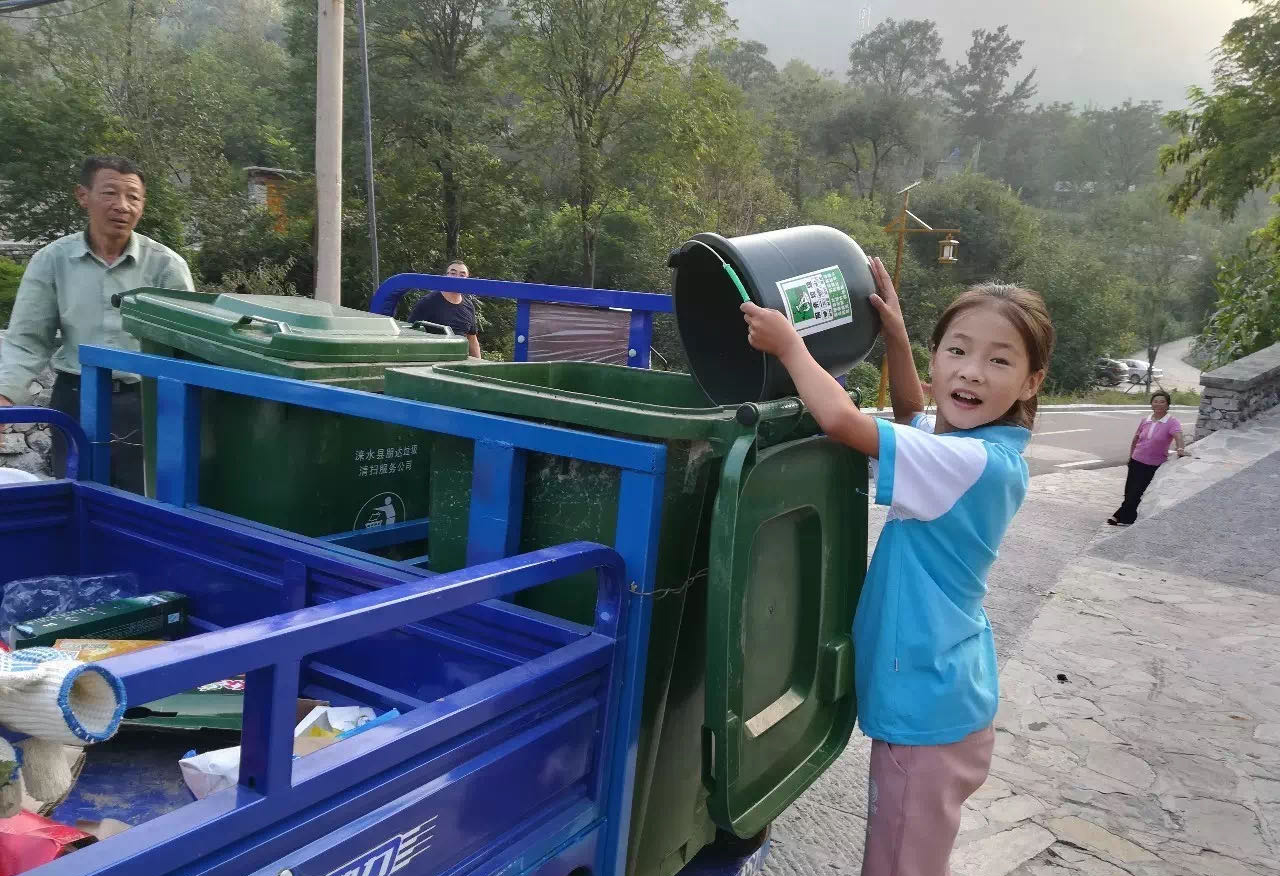
Hearing the sound of the horn, the villagers came out to sort out the garbage. Chen liwen
Later, we observed in the village. Some people said that there might be dung in the diapers used by children, and the smell would attract dogs to dig the trash can, which is small and easy to be knocked down by dogs.
I thought these complaints were good because they were willing to participate. If we introduce them patiently, they will accept them slowly. Now, they feel that the garbage is cleaner after sorting.
In fact, the vats in rural areas are far apart. It takes a long way to throw garbage, and those who are troublesome will throw it casually. But if there is a set of barrels at your door, it will become easier. There is a great change in Dongyang Township. After putting the rotten garbage into the green bucket, many people think it can be used as fertilizer, so they take it back to the field to grow vegetables. In the past, garbage received from landfills had to be weighed and settled. One month after garbage sorting, the amount of garbage decreased by half in the same month of the previous year.
Some village committees only participated in garbage classification in the early stage, and when they understood garbage classification in the later stage, they worked with the people in their own way. In an acquaintance society, if village committees go door-to-door to mobilize, ordinary people will soon be able to keep up.
A diversion: where did the last vat go?
Chen Liwen:Barrels are put on garbage trucks to collect garbage. After nearly two years of garbage sorting in Dongyang Township, revenue and expenditure have reached a balance. Moreover, the money spent now is also less, including the treatment fee and transportation fee for transportation to the landfill. The most important thing is that village committees and ordinary people have been mobilized, and garbage sorting has improved the relationship between cadres and the masses.
At the beginning, some village committees told Secretary Wang: Is it ok not to do it? Wang Shuji said: If the whole town does it, you have to do it. After finishing, the village cadre felt that it was not as difficult as expected.
Another village Committee said: I don’t know the classification of garbage. How can I tell the people?
When he finished, he felt a sense of accomplishment. Because the people do not reject this matter, and they agree with it. Therefore, we need to train village committees slowly so that they can also explain the problem of garbage management.
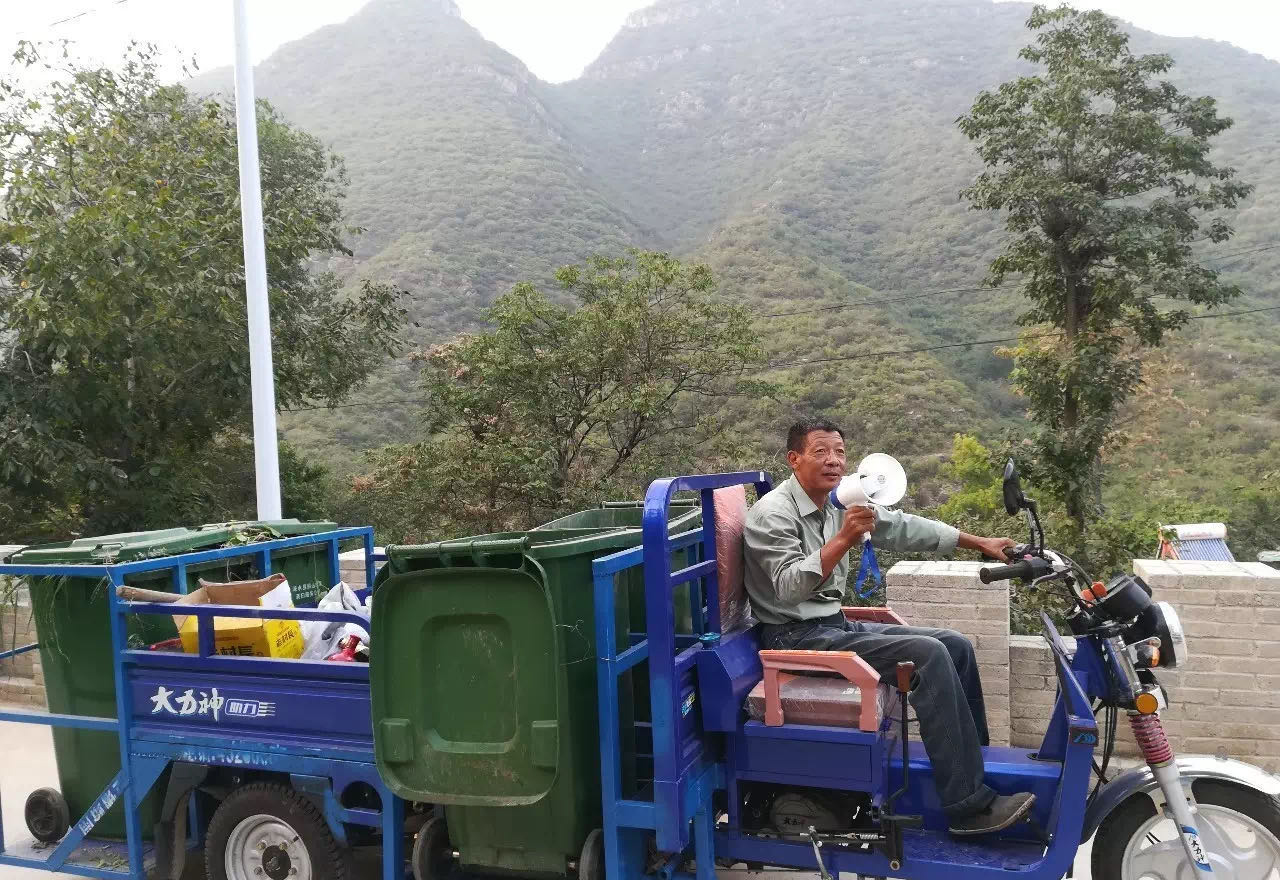
The sorting collection vehicle in Nanyu village is a low-chassis tricycle transformed by uncle of the repair shop in the neighboring village. Chen liwen
We now have three strategic directions. First, we will continue to do garbage sorting practice and constantly gain practical experience and lessons. The second is to be an education center. We have established an education base for rural waste sorting in Dongyang Township, and many people have come to learn from it. Third, continue to reduce waste based on areas that have been classified.
A diversion: What is your biggest challenge now?
Chen Liwen:The biggest challenge is sustainable management. Take Dongyang Township as an example. If Secretary Wang is transferred, can garbage classification form a normal operation and management mechanism? We want to try to solve this problem through two channels. One is to help the township formulate an assessment mechanism; The second is to make the scale go up a step, such as covering Guangfeng District and Shangrao City. The larger the regional scale, the lower the risk of sustainability.
In fact, the economy is also very important. It takes about 300 yuan to treat a ton of garbage in rural areas, which is not the money for pollution control and building garbage incineration plants. All this money comes from public finance, that is, taxpayers’ money, but we always feel that it is someone else’s money. This creates an illusion that you can throw rubbish at will.
Garbage classification is not only a scientific problem, but also a social problem. How do we face our production and lifestyle? Most consumers choose products subconsciously. What we should consider is how to restrain the choice of consumption in public governance. For example, how to change disposable items into reusable materials?
A diversion: can you recommend one or two books?
Chen Liwen:When I first entered the environmental protection industry, I watched Silent Spring, which was an important node that triggered the American environmental movement. I also recommend you to watch a documentary "Plastic Ocean". Plastic makes our life convenient, but it also causes serious environmental pollution, the essence of which is health. Now many chronic diseases are related to the use of plastics.
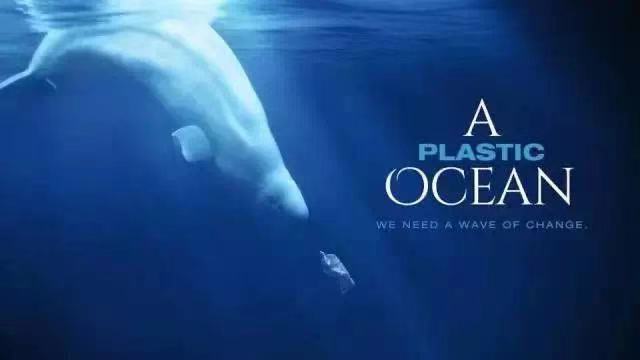
Poster for the documentary "Plastic Ocean"
I do environmental protection myself, and I have to do it myself. I have never ordered takeout, express delivery is inevitable, and I will try to avoid using disposable items. I believe in the strength of individuals, and I also think that the constraints of social governance are very important. The two complement each other.
关于作者